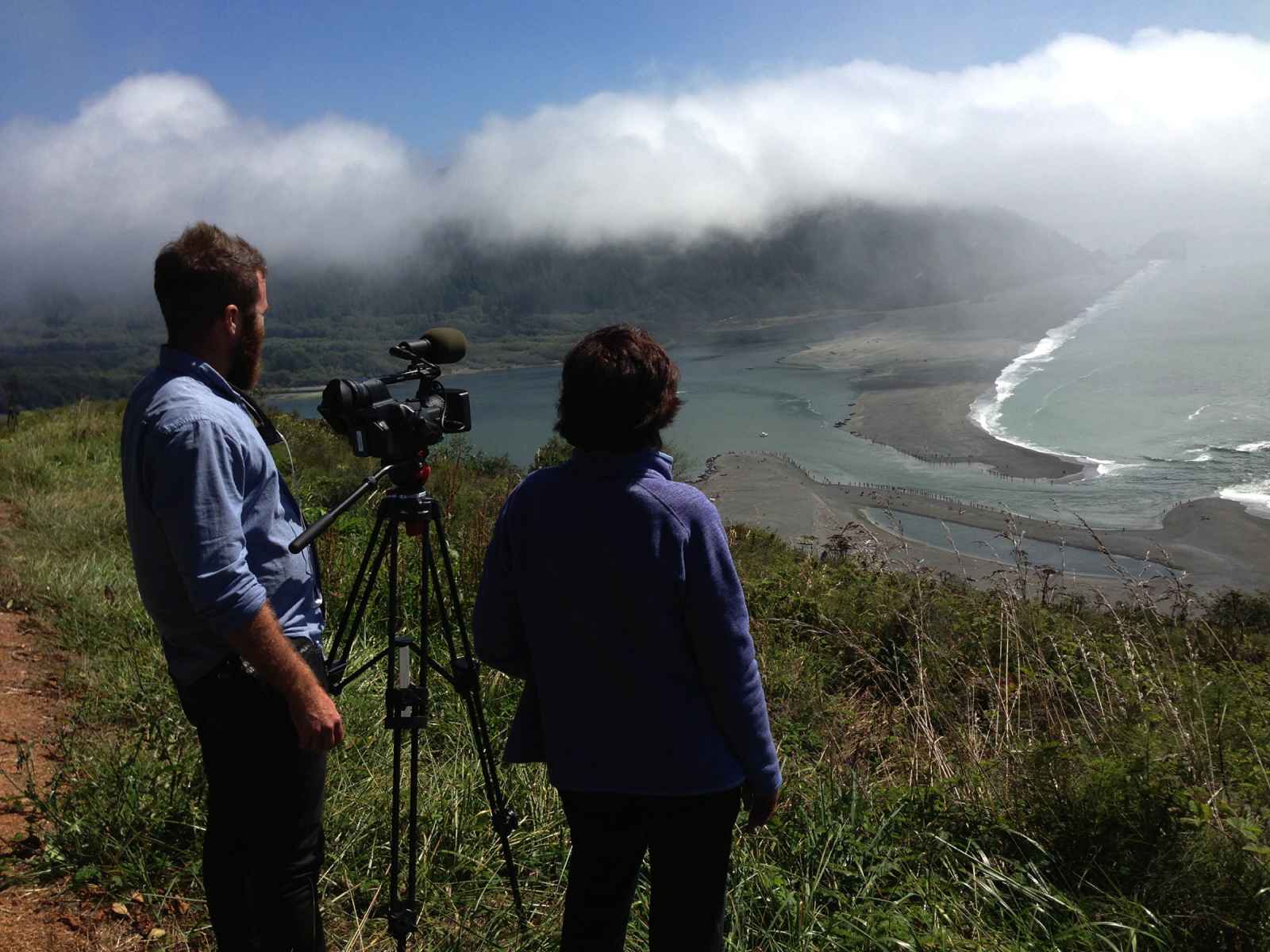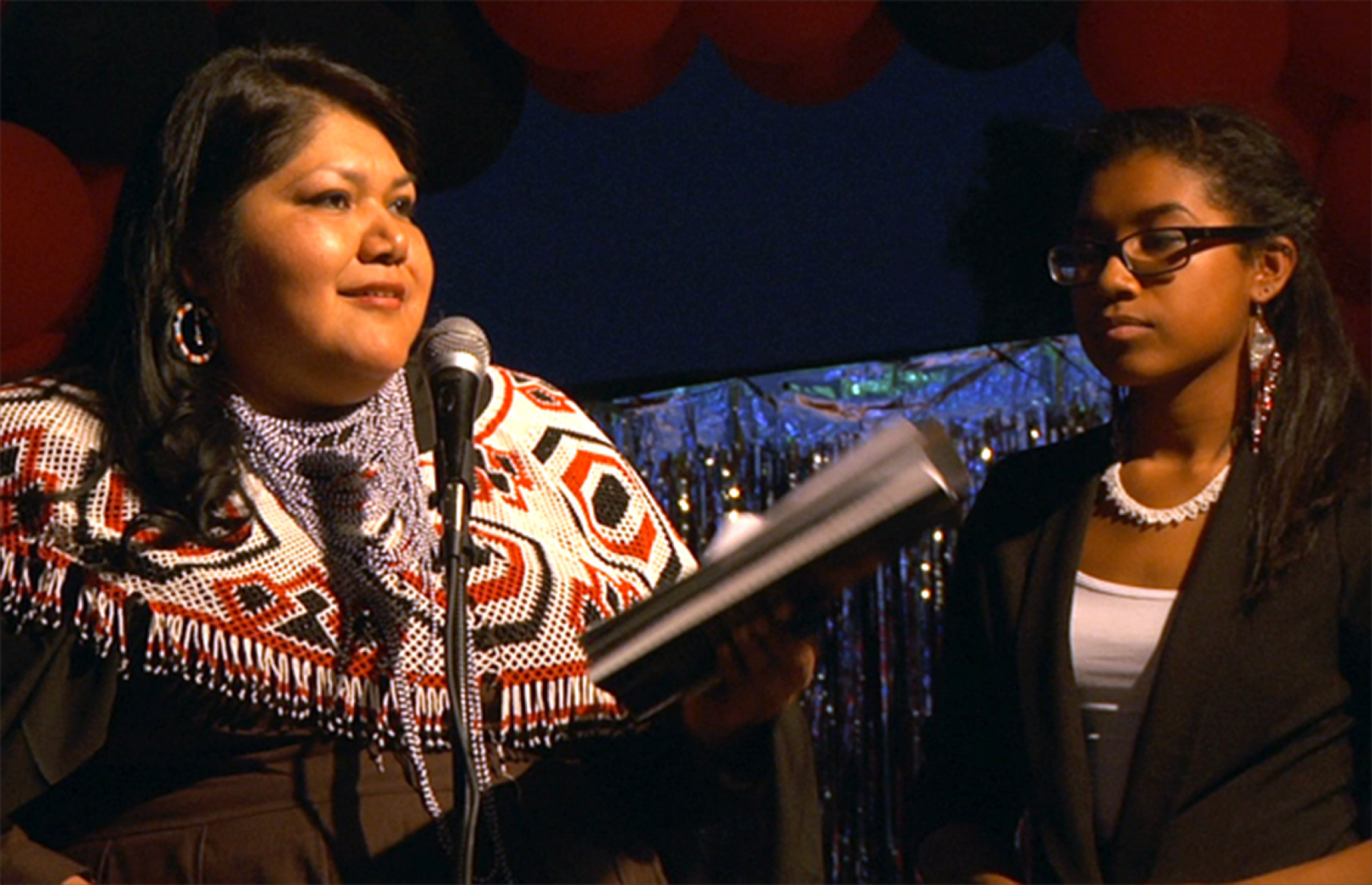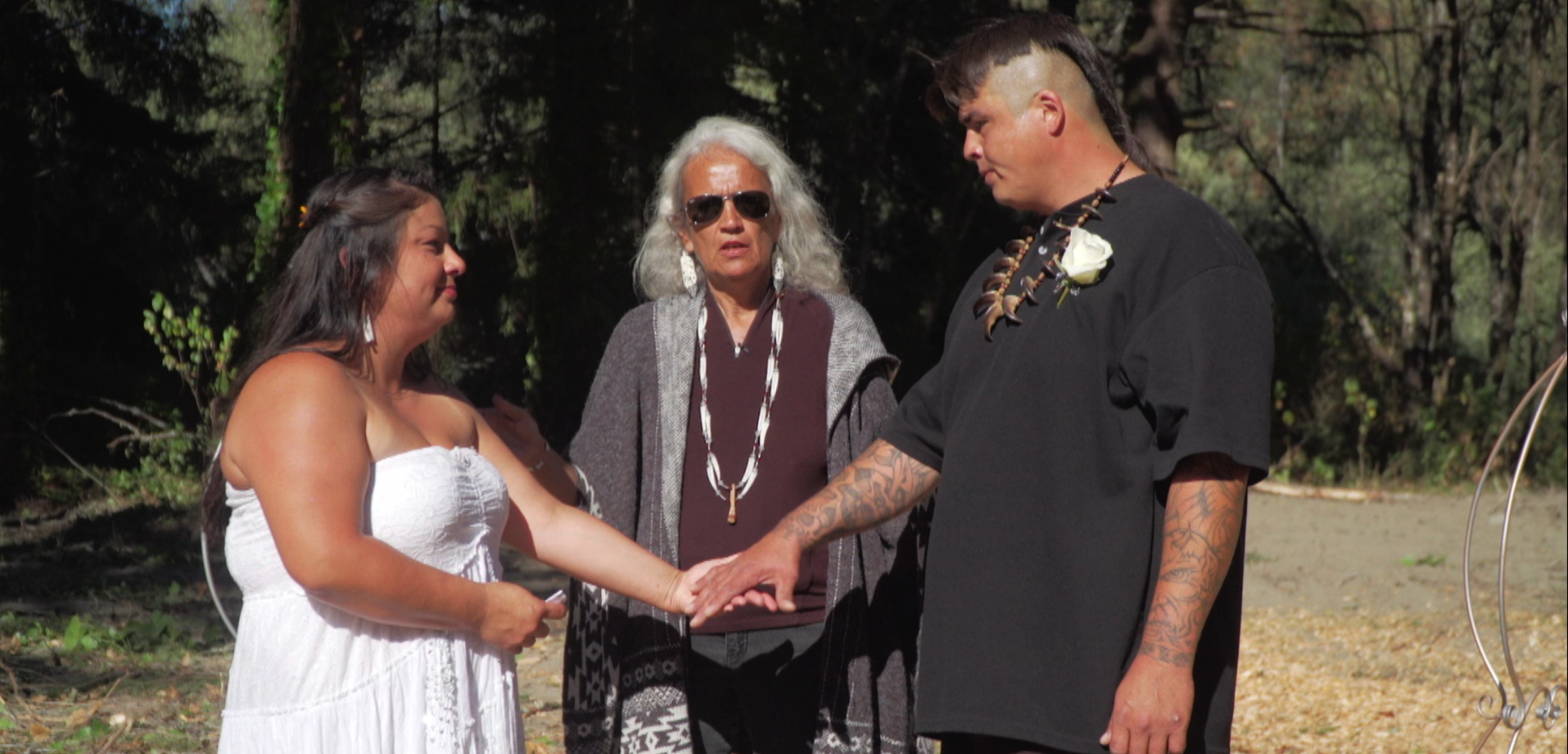Tribal Justice Forum
November 27-28, 2017 at the University of Nebraska–Lincoln
A two-day event featuring seven Indigenous women working toward tribal justice in academic, legal, and cultural venues throughout the country, and a screening of the award-winning film from Vision Maker Media.
Sponsored by Native American Studies with contributions from the Department of History, College of Arts & Sciences, College of Law, Institute for Ethnic Studies, OASIS, and Women’s & Gender Studies Program.
Native Women’s Justice Forum
Monday, November 27, 5:30pm McCollum Hall Auditorium, Room 115; Nebraska College of LawThis forum features a panel discussion with an executive, historian, and judge working to promote Native women’s access to justice within and beyond tribal communities throughout the United States. Audiences will learn about past and present practices making women particularly vulnerable members of their communities, hearing from those working as advocates and reformers, and should look forward to an opportunity for dialogue and exchange with panelists.
Panelists
Jacki Rand | Shirley Sneve | Claudette White
Moderator
Tribal Justice Screening & Panel
Tuesday, November 28, 6:30pm, City Union Auditorium
In Tribal Justice, two Native American judges reach back to traditional concepts of justice in order to reduce incarceration rates, foster greater safety for their communities and create a more positive future for youth. By addressing the root causes of crime, they are modeling restorative systems that are working. Mainstream courts across the country begin to take notice.
A co-production of Anne Makepeace Productions, Vision Maker Media and American Documentary | POV.
Audiences will hear from a local practitioner of Indian law in addition to the filmmaker and featured judge regarding their experiences pursuing tribal justice in and beyond Indian Country, and will have an opportunity to discuss the film's significance with the panelists.
Panelists
Anne Makepeace | Lindsey Schuler | Claudette White
Moderator
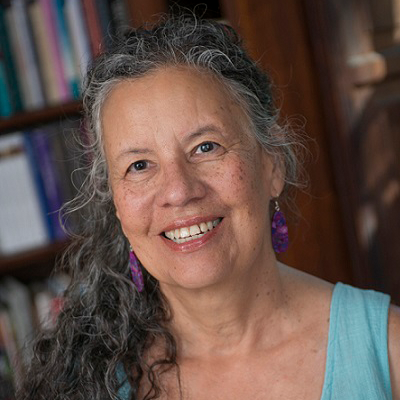
Jacki Rand
Associate Professor of History, University of Iowa
Jacki Rand is an Associate Professor of History and coordinator of American Indian and Native Studies at the University of Iowa. Professor Rand is the author of Kiowa Humanity and the Invasion of the State (Nebraska, 2008), articles, and essays. She currently works on several projects, including a book manuscript on violence against American Indian women. Professor Rand teaches courses on federal Indian law and policy, on the history of U.S. policing, on the politics of museums and representation, and on public history. Her academic career follows decade of work at the Smithsonian Institution which culminated in four years of community engagement work throughout the U.S. in support of planning for the National Museum of the American Indian. Her work informed the architectural programs for the Suitland collection facility and for the Mall museum. Her current research, using conventional archival sources, newspapers, tribal records, and oral history, examines violence against native women in a late 20th-century tribal community. She is also the coordinator of the collaborative digital project, “Iowa Native Spaces” which will be released in January 2018, and the faculty advisor to History Corps, a student-led digital project housed at the Department of History. Rand is a citizen of the Choctaw Nation of Oklahoma.
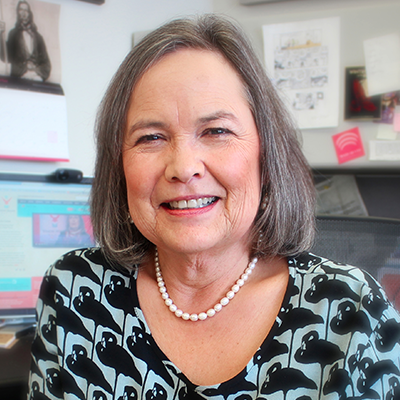
Shirley Sneve
Executive Director, Vision Maker Media
Shirley Sneve is the Executive Director of Vision Maker Media, whose mission is to empower and engage Native People to tell stories. An enrolled member of the Rosebud Sioux Tribe in South Dakota, she has been in Nebraska for 10 years. She has served as director of Arts Extension Service in Amherst, Massachusetts, and the Washington Pavilion of Arts and Science's Visual Arts Center in Sioux Falls, South Dakota. Shirley was assistant director for the South Dakota Arts Council, and she was a founder of Northern Plains Tribal Arts Show, the Oyate Trail cultural tourism byway, and the Alliance of Tribal Tourism Advocates. She started her career as a producer for South Dakota Public Broadcasting. She serves on the boards of The Association of American Cultures, the Friends of the Mary Riepma Ross Media Arts Center, the South East Nebraska Native American Coalition, and the Arts Extension Institute. She chairs the board of Native Americans in Philanthropy. Shirley is also a consultant with Creative Community Builders.
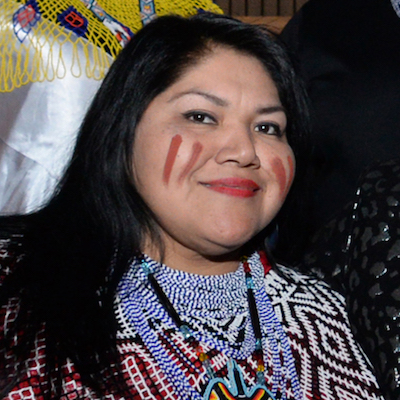
Claudette C. White
Chief Judge, Quechan Tribal Court
Claudette C. White has served as the Chief Judge for the Quechan Tribal Court since 2005. She is an enrolled member of the Quechan Indian Tribe and descends also from the Cocopan and Digueno Mission Indian Tribes in California and Arizona. She also serves as a judge at the Fort McDowell Indian Community, Ak-Chin Indian Community, Salt River Pima Maricopa Indian Community and Tonto Apache Tribal Courts. She is President of the Arizona Indian Judges Association, is an appointed member of the Arizona Tribal, State and Federal Court Forum and was appointed to the newly formed California Tribal Court/State Court Forum. She served as faculty for the South West Indigenous Women's Coalition Sexual Response Assault Team training program and faculty for the Arizona Bar Association's Leadership Series. Judge White was the youngest member ever elected to the Quechan Tribal Council where she served from 1995-1998. Following her Tribal Council tenure, she practiced as a legal advocate in the Quechan Tribal Court. Judge White, the first in her family to graduate from college, received her Bachelor of Science degree from Arizona Western College and Northern Arizona University, and her Juris Doctorate and a Special Certificate in Indian Law from Arizona State University's Sandra Day O'Connor School of Law.
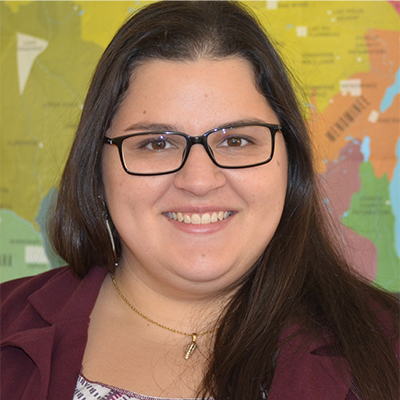
Margaret Huettl
Assistant Professor in History and Ethnic Studies, University of Nebraska-Lincoln
Margaret Huettl is a scholar of Native American history and North American Wests. Her research examines Indigenous sovereignty and settler colonialism in a transnational context. Her current project, "Ojibwe Peoplehood in the North American West, 1854-1954," explores Ojibwe or Anishinaabe sovereignty in the United States and Canada during the nineteenth and twentieth centuries, centering her research on Anishinaabe ways of knowing. Her research and teaching interests focus on Indigenous histories in North America, with a special interest in ethnohistorical methods and public history. She earned her PhD in History from the University of Nevada, Las Vegas (2016), her M.A. in Native American history from the University of Oklahoma (2010), and her B.A. from the University of Rochester (2008).
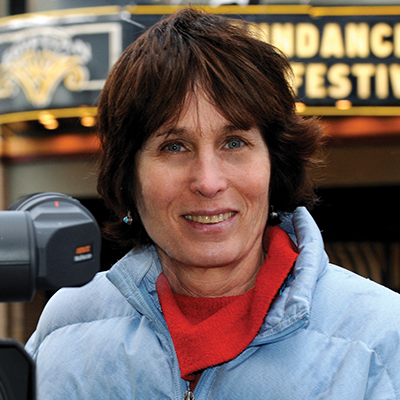
Anne Makepeace
Writer, director and producer of Tribal Justice
Anne Makepeace has been a writer, producer, and director of award-winning independent films for more three decades. Her new film, Tribal Justice, premiered at the Santa Barbara International Film Festival in February 2017, followed by many festival screenings across the country and culminating in a national PBS broadcast on POV this fall. Her previous documentary, We Still Live Here: Âs Nutayuneân, about the return of the Wampanoag language, had its broadcast premiere on the PBS series Independent Lens in November 2011. The film has won many awards, including the Full Frame Inspiration Award and the Moving Mountains Award at Telluride MountainFilm for the film most likely to effect important social change. The $3000 MountainFilm prize went directly to the Wampanoag Language Reclamation Project, enabling them to launch their first-ever language immersion camp for children. We Still Live Here was funded by ITVS, the Sundance Documentary Fund, the LEF Foundation, and the National Science Foundation, among others. Makepeace was able to complete the film with fellowships from the Guggenheim Foundation and the Radcliffe Institute for Advanced Study. Other recent films by Anne Makepeace include: I. M. PEI: Building China Modern (PBS broadcast on American Masters in 2010) and her Emmy nominated feature documentary Rain in a Dry Land (lead show on PBS P.O.V. 2007), which chronicles the journey and resettlement of two Somali Bantu refugee families from Africa through their first two years in America. Makepeace won a National Prime Time Emmy for her American Masters/PBS documentary Robert Capa in Love and War, which premiered at Sundance in 2003. Coming to Light, her documentary about Edward S. Curtis, also premiered at Sundance, was short-listed for an Academy Award in 2000, broadcast on American Masters in 2001, and won many prizes, including the O'Connor Award for Best Film from the American Historical Association, an Award of Excellence from the American Anthropological Association, a Gold Hugo from Chicago, Best Documentary at Telluride, and many others. Her first documentary, Baby It's You, premiered at Sundance, was broadcast as the lead show on P.O.V. in 1998, and screened at the Whitney Biennial 2000.
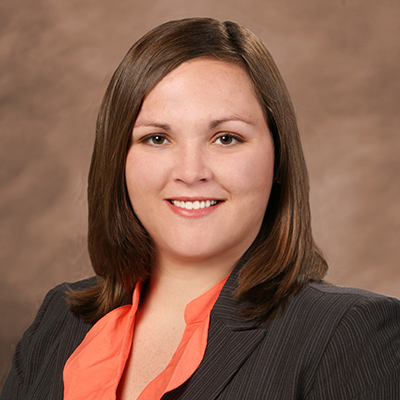
Lindsey Schuler
Attorney and co-founder of the Indian Law Section of the Nebraska State Bar Association
Lindsey Schuler graduated from the University of Kansas with a Bachelor of Arts in history, and then went on to attend law school at Michigan State University College of Law where she graduated with a certificate from the Indigenous Law and Policy Center. Lindsey is a member of the Nebraska State Bar and currently an associate attorney at Fredericks Peebles and Morgan. Her legal practice has included work in civil jurisdictional issues, tribal government, drafting tribal statutes, tribal business organization, adult and child guardianships, and other various facets of law that invoke special considerations as a result of containing an Indian Law element. Two years ago, Lindsey helped found the Indian Law Section of the Nebraska State Bar Association with two colleagues to bring awareness to Indian Law issues in Nebraska.
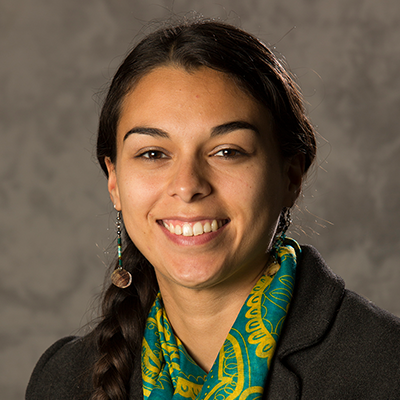
Rebekka Schlichting
Assistant Director of Vision Maker Media
Rebekka Schlichting is the Assistant Director of Vision Maker Media, whose mission is to empower and engage Native People to tell stories. An enrolled member of the Ioway Tribe of Kansas and Nebraska, Rebekka earned a master's in professional journalism from the University of Nebraska-Lincoln. She earned her bachelor's degree in journalism from the University of Kansas.
She has served as an adjunct professor and graduate teaching assistant at the University of Nebraska's College of Journalism and Mass Communications. Rebekka also taught Native leadership workshops and skills at the Nebraska Commission on Indian Affairs, SNYL Academy. Rebekka also served as producer at KUJH TV News in Lawrence, Kansas, and interned at Kansas Public Radio and Vision Maker Media. She is the chair of the powwow committee for the Ioway Tribe of Kansas and Nebraska.
